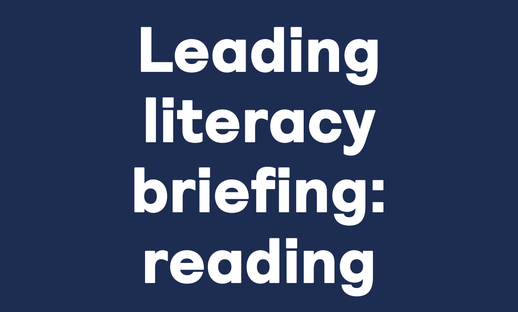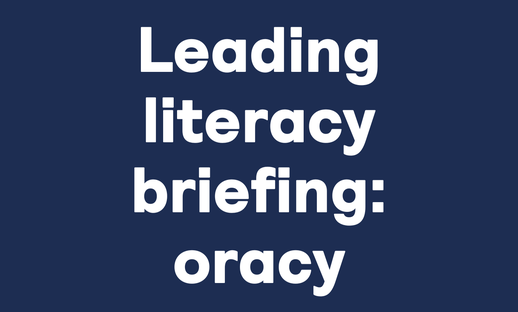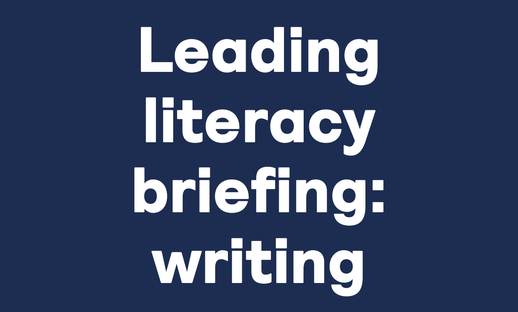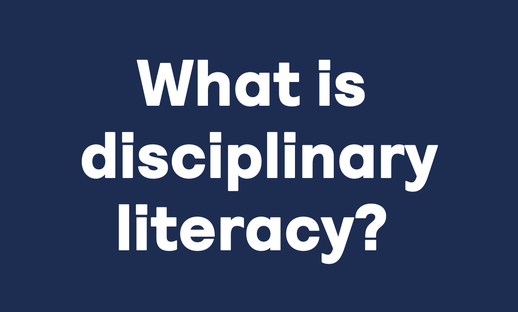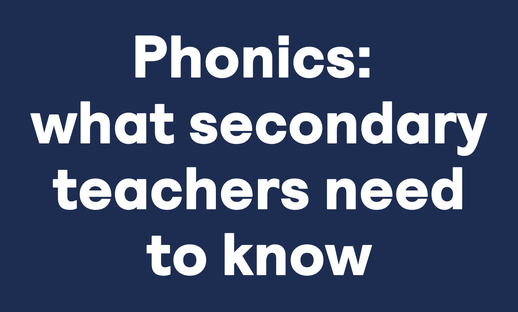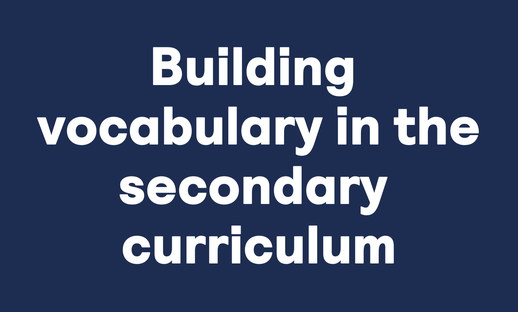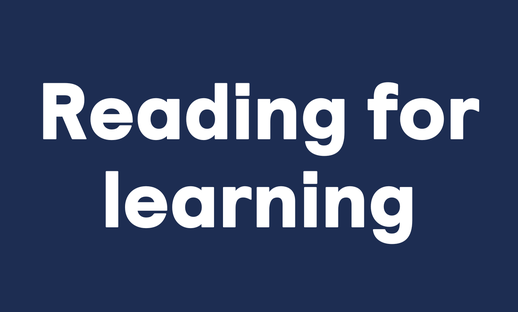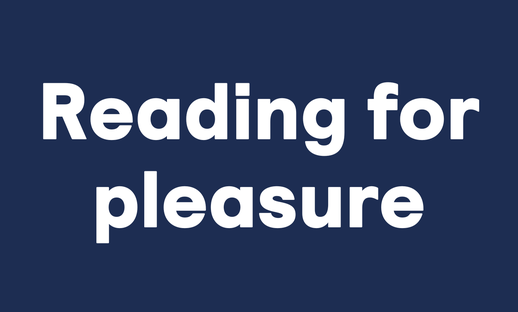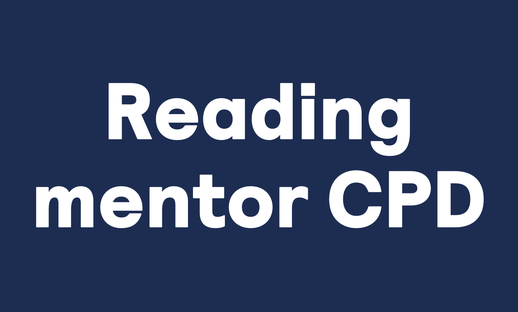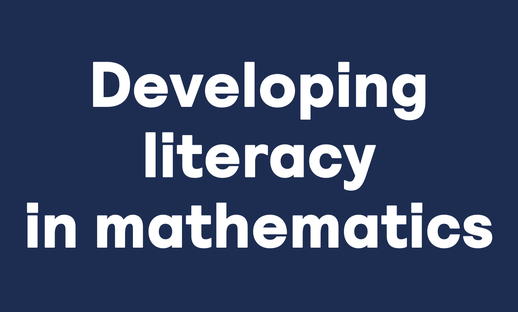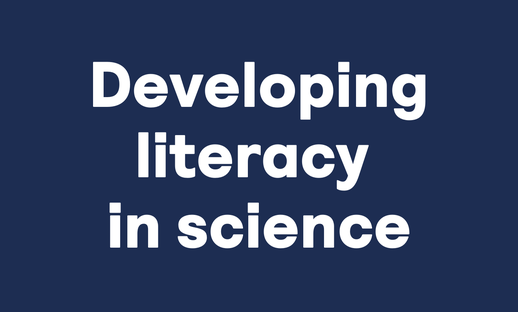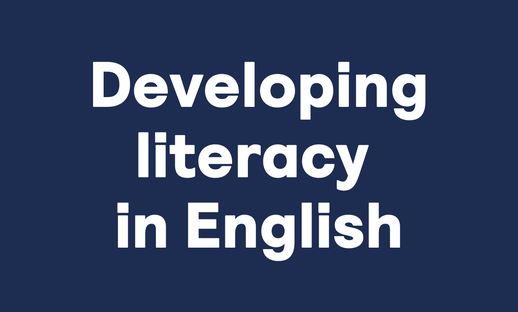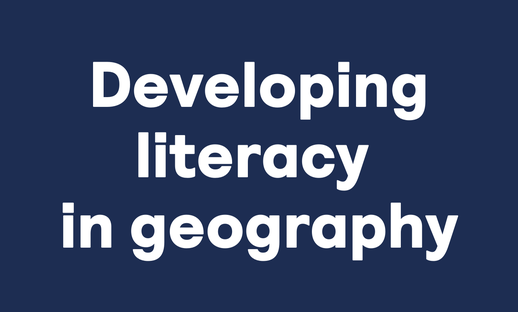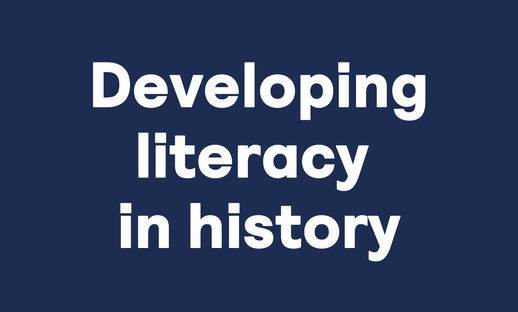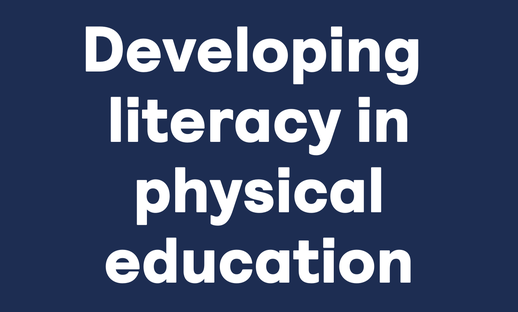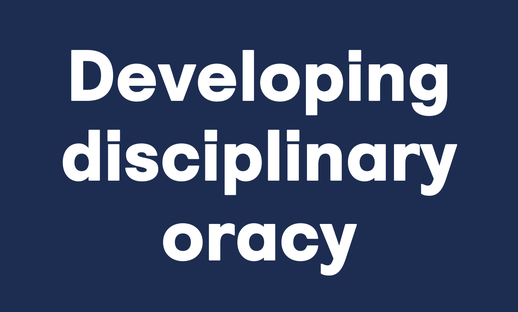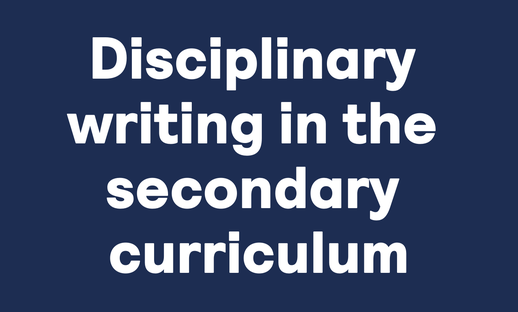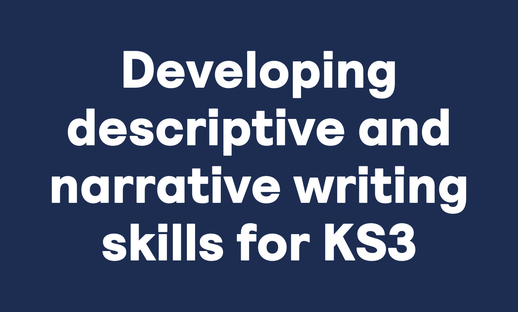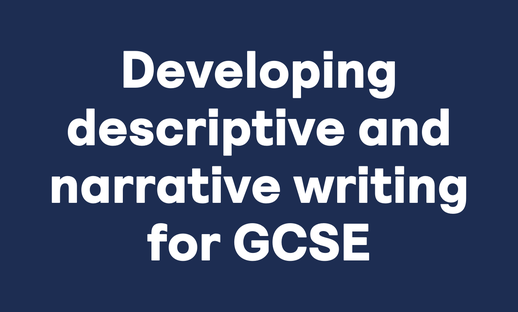Secondary CPD courses
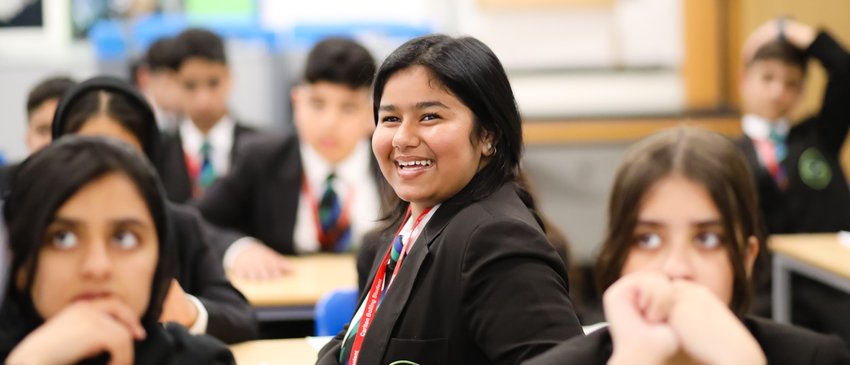
Our offer
Having good literacy skills is key to academic success. We provide professional development for senior leaders, literacy leads, subject teachers, and librarians to develop a whole-school approach to literacy teaching in secondary schools.
Our training is aligned with evaluation and research from the Education Endowment Foundation and emphasises the practical application of research in the classroom.
We recognise the importance of supporting all practitioners to teach their students how to read, write and communicate effectively in their subject - what is known as disciplinary literacy. We provide a wide range of training to develop confidence, knowledge and understanding of how to teach disciplinary literacy.
We also offer CPD on reading for pleasure, which draws on our own research that when young people enjoy reading, they read more often, helping to build vital reading skills and bringing wider benefits for wellbeing, confidence and learning.
Why attend?
- Build confidence and knowledge in how to teach literacy in your subject
- Gain practical strategies to apply in your teaching
- Interact live with a specialist trainer
- Keep up to date with the latest literacy research
- Receive high-quality resources
Feedback from a school, who has engaged with a wide-ranging programme of literacy CPD with us
Thank you for all the input in recent years. The training has always been of exceptional quality and pivotal to securing improvements with reading and writing. Our inspection report published this week evidenced literacy as a strengthening area. I thought that it would be nice to show you the tremendous impact of your work. I hope that you recognise the parts that the National Literacy Trust trainers influenced! Thank you for your support – you do an amazing job. We look forward to continuing to work with you in coming years.
Deputy Headteacher, Bishop Vaughan Catholic School
For more information on literacy leadership
Read our blogs on literacy leadership for more insight into our CPD and training.
- EEF blog: Co-constructing disciplinary literacy: Rethinking literacy leadership in secondary schools
- Disciplinary literacy: The key to year 7 transition
Explore our literacy CPD training pathways
Each pathway below suggests a sequence of courses to build skills and understanding in a specific literacy area. Each individual course can be purchased either as a scheduled ticketed event or as a group booking on a date of your choice.
- Leading literacy in secondary school
- Introduction to disciplinary literacy
- Disciplinary reading, reading for pleasure and phonics
- Disciplinary literacy in subjects
- Disciplinary oracy in the secondary curriculum
- Disciplinary writing in the secondary curriculum
- Supporting English teachers
Enquiries
For all ticketed events contact:
- Jess Hirst, Project Officer, jess.hirst@literacytrust.org.uk
For all group or whole-school training enquiries contact:
- Nisha Tank, Head of School Improvement, nisha.tank@literacytrust.org.uk
For any other secondary training enquiries please contact:
- Kate Warde, kate.warde@literacytrust.org.uk or call 07742 768406
Secondary national conference 7 July 2025
Join us to hear firsthand from our prestigious keynote speakers, Alice Deignan and Kareem Parkins Brown, who will share their expertise and insights as they spearhead this year's Secondary National Conference.
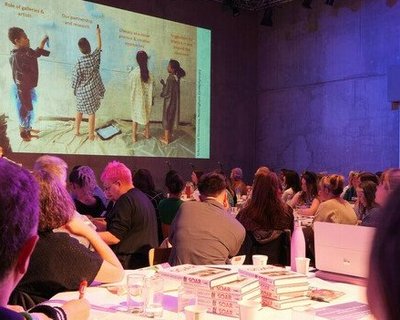
Explore our literacy training pathways for 2025
Pathway one
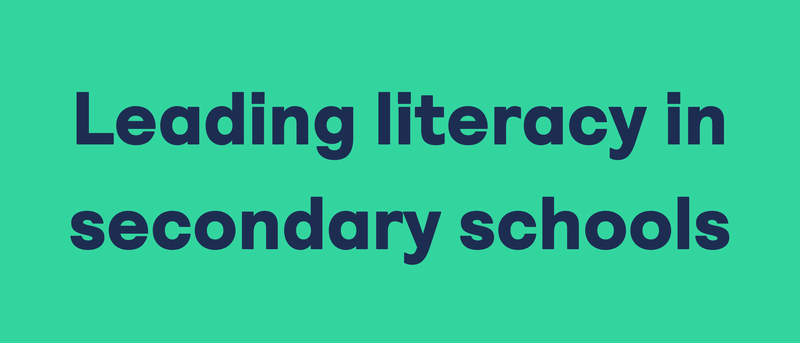
-
Expert guidance and tools on how to lead reading.View details about Leading literacy briefing: reading
-
Expert guidance and tools on how to lead oracy.View details about Leading literacy briefing: oracy
-
Expert guidance and tools on how to lead writing for secondary practitioners.View details about Leading literacy briefing: writing
Pathway two
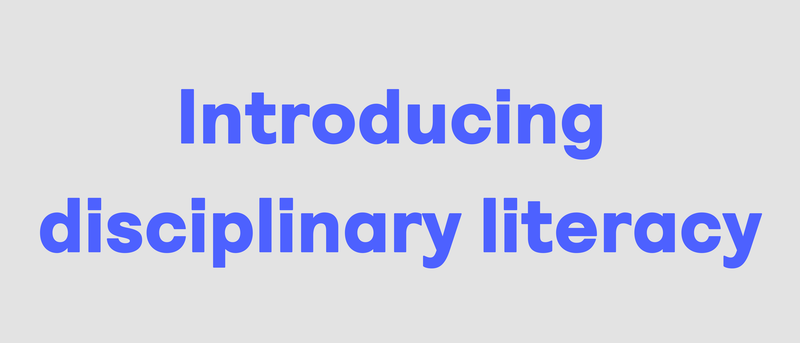
-
New to, or developing your understanding of the concept of disciplinary literacy? This course introduces the concept and explores practical classroom strategies.View details about What is disciplinary literacy?
Pathway three
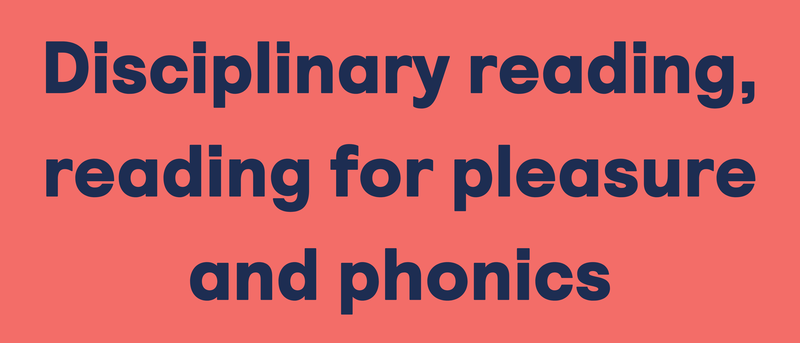
-
Expert guidance and tools on how to lead reading.View details about Leading literacy briefing: reading
-
Learn to understand phonics and its impact on students' reading and writing skills, while gaining practical strategies for adaptive teaching in secondary classrooms.View details about Phonics: what secondary teachers need to know
-
With courses for leaders and subject teachers, learn how to develop effective approaches to teaching academic vocabulary in all subjects.View details about Building vocabulary in the secondary curriculum
-
Learn how to develop the academic reading skills that students need to access knowledge and concepts in all subjects and do well in their exams.View details about Reading for learning
-
Explore how to develop a culture of reading for pleasure in school and gain ideas on supporting students’ reading for enjoyment at home.View details about Reading for pleasure
-
Learn how to become a skilled reading mentor and plan effective sessions.View details about Reading mentor CPD
Pathway four
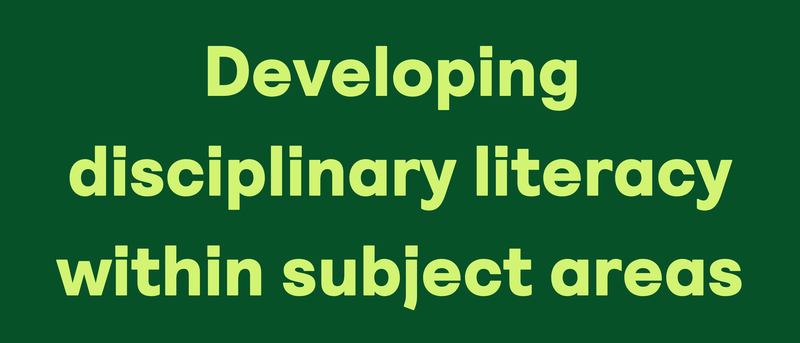
These courses are ideal for practitioners, who are either new to, or developing an understanding of disciplinary literacy and how it can be taught in their subject. They are also suitable for literacy leads or line managers, who are supporting a subject area.
Sessions are live and interactive and grounded in literacy research and theory. They are designed to equip teachers with the knowledge, understanding and skills to teach the reading, writing and communication skills required for their subject and offer practical teaching strategies.
-
Learn how to develop the reading, writing and communication skills to support students’ learning and exam preparation in mathematics.View details about Developing literacy in mathematics
-
Learn how to develop the reading, writing and communication skills to support students’ learning and exam preparation in science.View details about Developing literacy in science
-
Learn how to develop the reading, writing and communication skills to support students’ learning and exam preparation in English.View details about Developing literacy in English
-
Learn how to develop the reading, writing and communication skills to support students’ learning and exam preparation in geography.View details about Developing literacy in geography
-
Learn how to develop the reading, writing and communication skills to support students’ learning and exam preparation in history.View details about Developing literacy in history
-
Learn how to develop the reading, writing and communication skills to support students’ learning and exam preparation in physical education.View details about Developing literacy in physical education
Pathway five
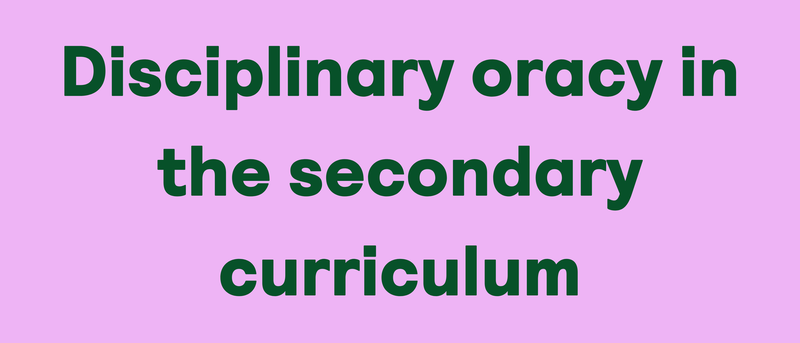
-
Expert guidance and tools on how to lead oracy.View details about Leading literacy briefing: oracy
-
This training explores the role of talk as a tool for learning and promotes different ways of implementing exploratory talk activities in the classroom.View details about Developing disciplinary oracy
Pathway six
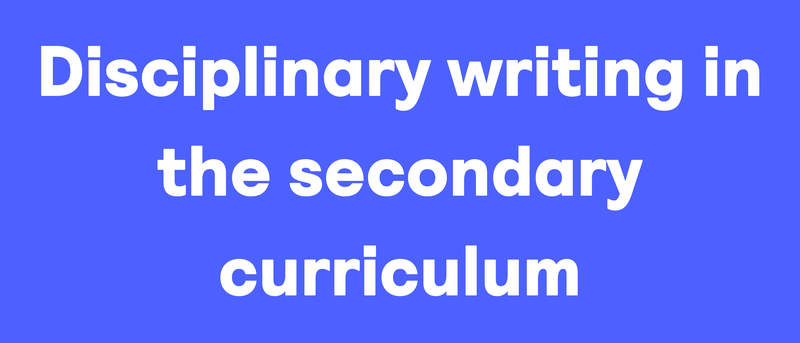
-
Expert guidance and tools on how to lead writing for secondary practitioners.View details about Leading literacy briefing: writing
-
Learn what the research says works in teaching writing to adolescents and practical ways to apply this to develop students' writing skills in the classroom and for exams.View details about Disciplinary writing in the secondary curriculum
Pathway seven
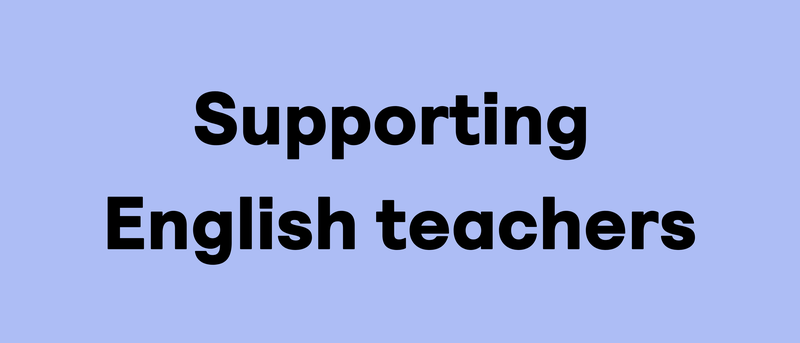
We provide CPD that focuses on developing students’ reading, writing and oracy skills within English.
Our interactive writing CPD explores how to motivate secondary students to write imaginatively and enjoy self-expression. Aligned with current research, both courses highlight ways of teaching writing conventions in the context of creative writing. Participants will try out practical writing strategies that can be immediately deployed in KS3 and KS4 English lessons.
-
Learn how to develop the reading, writing and communication skills to support students’ learning and exam preparation in English.View details about Developing literacy in English
-
Acclaimed spoken-word artist and award-winning poet, Polarbear - aka - Steven Camden exemplifies his powerful talk-based approach to motivate KS3 writers.View details about Developing descriptive and narrative writing skills for KS3
-
Help KS4 students develop writing skills for the GCSE English exam. Join Booker-nominated author, Wyl Menmuir, to try out a range of practical strategies.View details about Developing descriptive and narrative writing for GCSE
-
Explore how to develop a culture of reading for pleasure in school and gain ideas on supporting students’ reading for enjoyment at home.View details about Reading for pleasure
